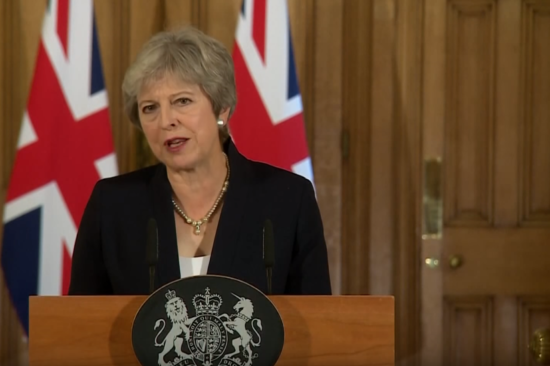British Prime Minister Theresa May has said that “no plan is better than a bad plan.”
May further said that Brexit negotiations were “at an impasse,” at the informal EU meeting in Salzburg.
“We cannot accept anything that threatens the integrity of our union, just as they cannot accept anything that threatens the integrity of theirs. We cannot accept anything that does not respect the result of the referendum, just as they cannot accept anything that is not in the interests of their citizens,” May said.
On Sept. 20, the European Union rejected her Chequers proposal for leaving the bloc. The impasse stems over seemingly intractable divisions over the best way to avoid a hard border on the island of Ireland and how to deal with future trade. EU chief Donald Tusk said that May’s plan would not work. He stated that Britian’s proposals would undermine the single market.
“First we reconfirmed that there will be no withdrawal agreement without the solid operational and legally binding Irish backstop, and we continue to fully support Michel Barnier in his efforts to find such a model. Second, we agreed to have a joint political declaration that provides as much clarity as possible on the future relations. Everybody’s shared the view that while there are positive elements in that Chequers proposal, the suggested framework for economic cooperation will not work, not least because it risks undermining the single market,” Tusk said.
Even in the U.K., parliamentary support for May’s exit strategy is cracking. Former Brexit secretary David Davis confirmed the sentiment when asked by the press.
“Well, it’s plain, even in today’s newspapers, that more and more members of parliament are deciding to vote against Chequers and not to support it, so it’s going to look to be very, very difficult indeed to deliver Chequers in parliament,” Davis said.
With Britain’s departure from the EU coming up on March 29, 2019, there are growing concerns that a deal on the post-Brexit relationship may not be cobbled together in time to ensure a smooth and orderly exit.
Although there is much talk of compromise, there is no evidence of any.













